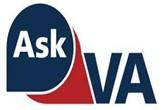Attention A T users. To access the menus on this page please perform the following steps.
1. Please switch auto forms mode to off.
2. Hit enter to expand a main menu option (Health, Benefits, etc).
3. To enter and activate the submenu links, hit the down arrow.
You will now be able to tab or arrow up or down through the submenu options to access/activate the submenu links.
VA »
Office of Small & Disadvantaged Business Utilization
»
Frequently Asked Questions »
Vets First Contracting Program FAQs
Office of Small & Disadvantaged Business Utilization
Vets First Contracting Program FAQs
-
What is the Vets First Contracting Program and what benefits does Verification provide for our company?
-
What is the purpose of this program? Is it business development like 8(a)?
-
Does this program apply to all Federal agencies?
-
Do State and Local Government agencies accept VA's Verification status?
-
Will Verification help me win Federal contracts?
-
Is there a benefit like a price adjustment if I get verified?
-
Is Verification required for subcontracting?
-
If my verification expires, am I still able to perform the task orders of a contract?
-
Will the Center for Verification and Evaluation provide assistance to Veterans seeking advice on how to structure their business model in order to increase the possibility of becoming VOSB/SDVOSB verified?
-
What must a franchise do to become verified for the Veterans First Contracting Program?
-
Does CVE still have a policy for class deviation and if not, will they issue another deviation?
-
May a partnership have two general partners so long as managing control is with the Veteran or service-disabled Veteran general partner?
-
Should Personally Identifiable Information (PII) be redacted when providing documentation to Center for Verification and Evaluation (CVE) for verification?
-
How do I establish a Joint Venture for the purpose of registering with Center for Verification and Evaluation (CVE)?
The Vets First Contracting Program within the Department of Veterans Affairs (VA) was created under Public Law, P.L. 109-461. This contracting program was created for Veteran-Owned Small Businesses and expanded the Service-Disabled Veteran contracting program for VA procurements. The Public Law was implemented in two regulations published in the Federal Register:
- 38 CFR Parts 802, 804, 808, 809, 810, 813, 815, 817, 819, 828, and 852 Supporting Veteran-Owned and Service-Disabled Veteran-Owned Small Businesses were amended on December 8, 2009, to implement changes to the VA Acquisition Regulation. This regulation defines the acquisition rules for the program with VA.
- 38 CFR Part 74 Veterans Small Business Regulations was published on February 8, 2010, and clarified on January 19, 2011. This regulation defines the requirements for verification as a Veteran-Owned Small Business or a Service-Disabled Veteran-Owned Small Business.
The Veteran business owner and the Government mutually benefit from this program. Upon approval, the Program Participant has documented proof of eligibility. This gives confidence to VA that set-asides are being awarded to legitimate firms owned and controlled by Veterans or Service-Connected Disabled Veterans. This helps stimulate the small business community and create growth for the economy.
Approved firms are eligible to participate in Veteran-Owned Service-Disabled (VOSB) and SDVOSB set-asides issued by VA. They are eligible to subcontract with VA’s large prime contractors in acquisitions where additional evaluation credit. VA is one of the largest procurement organizations in the Federal Government. Annually, this Department spends over $3 Billion with eligible Veteran-Owned Small Businesses. That’s a lot of opportunity.
2. What is the purpose of this program? Is it business development like 8(a)?
This program is not like the 8(a) program. The purpose is to ensure that legitimately owned and controlled VOSBs and SDVOSBs are able to compete for VA VOSB and SDVOSB set-aside and are credited by VA's large prime contractors for subcontract plan achievements.
3. Does this program apply to all Federal agencies?
No, the Verification Program applies ONLY to the Department of Veterans Affairs. Other Federal agencies accept self-representation. They rely upon information in the System for Award Management.
4. Do State and Local Government agencies accept VA's Verification status?
Check with the specific Government agency in question. VA has no formal agreements with any state or local Government agencies regarding use of the VetBiz.gov Vendor Information Pages database.
5. Will Verification help me win Federal contracts?
Verification is required only for VOSB or SDVOSB set-aside opportunities with VA. Verification has no bearing on contracting opportunities with other Federal agencies.
6. Is there a benefit like a price adjustment if I get verified?
There is no financial incentive to being verified. The incentive is that you become eligible to participate in Vets First Contracting Program with VA.
7. Is Verification required for subcontracting?
Full and open solicitations issued by VA after December 9, 2009, contain a clause, VAAR 852.219-9, VA Small Business Subcontracting Plan Minimum Requirements (December 2009) which says: “To be credited toward goal achievements, businesses must be verified as eligible in the Vendor Information Pages database. The contractor shall annually submit a listing of Service-Disabled Veteran-Owned Small Businesses and Veteran-Owned Small Businesses for which credit toward goal achievement is to be applied for the review of personnel in the Office of Small and Disadvantaged Business Utilization.” This plan is only required from large business concerns. For more information about VA’s subcontracting program, please contact VA’s Center for Small Business Utilization at (202) 461-4300.
8. If my verification expires, am I still able to perform the task orders of a contract?
This depends on how the solicitation is written and the specifications will have to be confirmed with the contracting officer.
CVE is not authorized to advise companies on how to structure their business. However, we have partnered with the Procurement Technical Assistance Center (PTAC) organizations to support and assist companies with preparing and submitting their application. Find your local PTAC representative at http://www.aptac-us.org/new/Govt_Contracting/find.php.
We also encourage you to take advantage of our Verification Assistance Program. In order to minimize misunderstanding of the regulations, we established the Verification Assistance Program. Our goal is to increase understanding and awareness of the specific reasons for noncompliance, in an effort to increase the success rate of applicants.
The information below are suggested sources of information that aides in understanding the verification process.
- Review Verification Assistance Briefs: These briefs have been designed to clarify rules associated with 38 CFR Part 74. The briefs are based on an analysis of issues that cause the majority of denials. A large percentage of the reasons for denials are due to issues addressed in the Veteran Assistance Briefs.
10. What must a franchise do to become verified for the Veterans First Contracting Program?
Due to the level of control that is generally contained in a Franchise Agreement, the Franchisor maintains a significant amount of control over certain day-to-day activities as well as certain long term decisions of the Franchisee (the Applicant). That is the nature of a franchise. With this type of agreement, the applicant would not be eligible for the Veterans First Contracting Program. However, CVE reviews the business documents for each company to assess if it meets the requirements of 38 CFR Part 74.
11. Does CVE still have a policy for class deviation and if not, will they issue another deviation?
Class deviation has expired on 30 Sep 2012 and there are no plans to issue class deviation.
A business filing with two or more general partners must have at least one Veteran or service-disabled Veteran serving as general partner. In accordance with 38 CFR § 74.4(d), the Veteran or service-disabled Veteran general partner must have managing control over all partnership decisions. A partnership without a Veteran as a general partner is not eligible for the Veterans First Contracting Program.
CVE’s recommendation is that, except on VA Form 0877, applicants should redact (black out) all PII on application documentation including: Social Security number(s), date(s) of birth, home address(es) (if different from the business address(es), home phone number(s), bank routing number(s) and checking account number(s). However Veteran and service-disabled Veteran owners must include their Social Security numbers on the VA Form 0877. In the event CVE is in need of any specific documentation that contains PII, a document request will be submitted to the Veteran company to provide such information.
To establish a joint venture, a company must begin by forming a separate legal entity. From there, the company must follow the rules of its home state for filing as a joint venture. For example, if the joint venture were to be established as a limited liability company (LLC), depending on state law, the company would have to file Articles of Organization. There is no requirement that a company create Articles of Incorporation if none are required under state law to establish the particular legal entity.
























